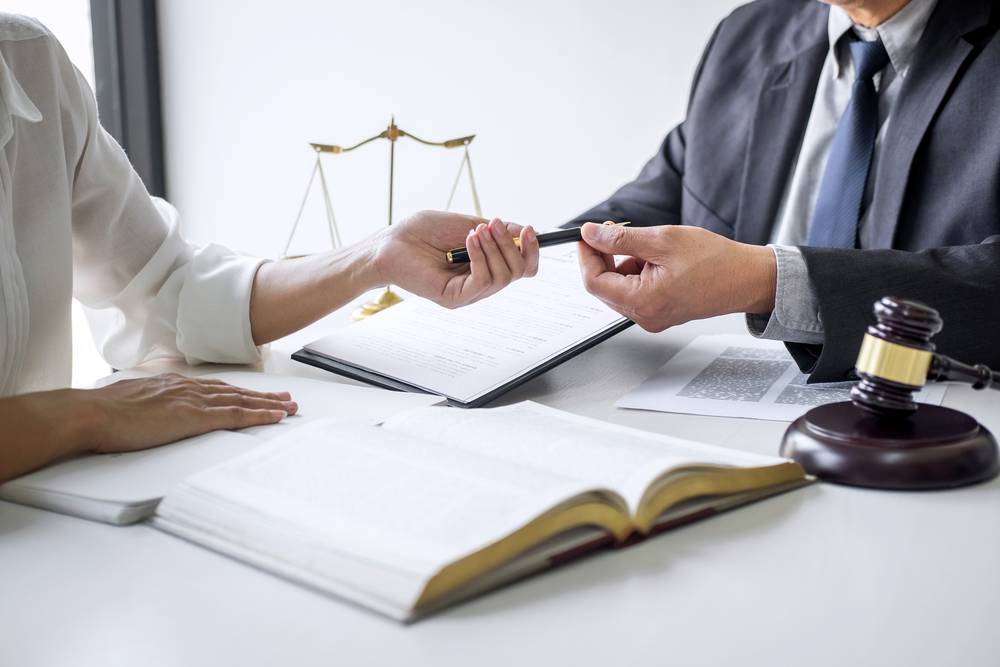In today’s fast-paced and innovative world, protecting intellectual property is crucial. Understanding the distinctions between trademarks, patents, and copyrights is essential whether you’re an entrepreneur, artist, or inventor.
While trademarks, patents, and copyrights serve distinct purposes, there can be instances where they overlap. For example, a logo can be both a trademark and a copyrighted work if it meets the criteria for originality. Additionally, copyright for the code and patents for innovative processes or algorithms can work together to protect software.
Legal Protections In Action
In the complex world of intellectual property, understanding the acquisition and legal protections and defenses associated with trademarks, patents, and copyrights is crucial. Each form of intellectual property has its own safeguards and legal mechanisms to protect creators, inventors, and businesses who hold these valuable assets.
Trademarks
A trademark is a unique symbol, word, or combination used to identify and distinguish goods or services from those of others. Trademarks play a pivotal role in safeguarding brands and their identities, as the primary purpose of a trademark is to prevent consumer confusion and ensure that consumers can reliably identify and choose a particular product or service. Trademarks can include logos, slogans, sounds, and even scents.
To obtain trademark protection, one must register the mark with the relevant authorities, such as the United States Patent and Trademark Office (USPTO). Registration grants the owner exclusive rights to use the mark for the specified goods or services. Renewal is required to maintain these rights over time.
Legal Protection From Trademarks
Once a trademark is registered, the owner gains exclusive rights to use that mark with the specified goods or services. This exclusivity is a powerful legal protection, preventing others from using a similar mark in a way that could confuse consumers.
Trademark owners can take legal action against individuals or businesses that use a confusingly similar mark, including seeking injunctions to stop the infringing use and claiming damages for any harm caused to the brand’s reputation.
Exceptions to Trademark Protections
Using a trademark may be considered fair in certain situations, such as in commentary, criticism, or parody. This defense allows others to use a trademark without permission if it serves a legitimate purpose without confusion.
If a trademark becomes generic and is widely used to describe a category of products or services, it may lose its protected status. Aspirin and escalator are examples of trademarks that became generic over time. If a trademark owner unreasonably delays taking legal action against an infringer, they may lose the right to enforce their mark due to the doctrine of laches.
Patents
Unlike trademarks, patents focus on protecting inventions and discoveries. A patent grants inventors exclusive rights to their inventions for a specific period, typically 20 years from the filing date. This exclusivity allows inventors to recoup their investments in research and development while encouraging further innovation. To secure a patent, inventors must submit a detailed application describing the invention’s novelty, usefulness, and non-obviousness.
Legal Protections of Patents
Patents give inventors the exclusive right to make, use, and sell their inventions for a specified period, typically 20 years. Patent owners can grant licenses to others, allowing them to use the patented invention in exchange for royalties or other compensation.
If needed, the inventors holding a patent can file infringement lawsuits against those who make, use, or sell the patented invention without permission. Successful lawsuits can result in injunctions and damages.
Defenses to Patent Infrigement Claims
Accused infringers can challenge the validity of a patent by arguing that it does not meet the necessary criteria, such as novelty, non-obviousness, or usefulness. If a court finds a patent invalid, it may be unenforceable.
Some jurisdictions recognize a defense based on prior use, allowing a party to continue using an invention if they can demonstrate that they were using it before the patent was granted. Sometimes, using a patented invention for experimental purposes or research may be considered a defense against infringement.
Copyrights
Copyrights primarily protect original works of authorship, including literary, artistic, and musical creations. Copyrights give creators the exclusive right to reproduce, distribute, and display their works. Copyright protection spans various creative endeavors, from novels and paintings to songs and software code.
It’s important to note that copyright protection is automatic upon creating a work – registration with the Copyright Office is not mandatory but provides additional benefits, such as the ability to pursue statutory damages in case of infringement.
Legal Protection of Copyrights
Copyright gives creators exclusive rights to reproduce, distribute, perform, and display their original works. This protection applies automatically upon creation, but registration enhances legal remedies. Copyright owners may sue individuals or entities that reproduce, distribute, or publicly display their copyrighted works without permission for monetary damages.
Defenses to Copyright Infringement Claims
Similar to trademarks, fair use is a defense in copyright law. It allows for the use of copyrighted material for criticism, commentary, news reporting, teaching, scholarship, or research without permission. If a work is in the public domain, it is not protected by copyright, and anyone can use it freely. Works may enter the public domain because the copyright has expired or the creator has waived their rights.
Seek Legal Guidance
In our rapidly innovating world, navigating the realms of trademarks, patents, and copyrights is essential for safeguarding creative and innovative endeavors. Whether you’re a business owner, inventor, or artist, securing the appropriate protection is critical to ensuring your hard work receives the recognition it deserves.
By grasping the nuances of trademarks, patents, and copyrights, you empower yourself to make informed decisions about protecting your intellectual property. AVID Esq. Group LLC is here to help you stay vigilant and protect your creative intellectual property. Call us today at (480) 805-4357 to schedule a consultation.


 Call Us Now
Call Us Now Email Us Now
Email Us Now



